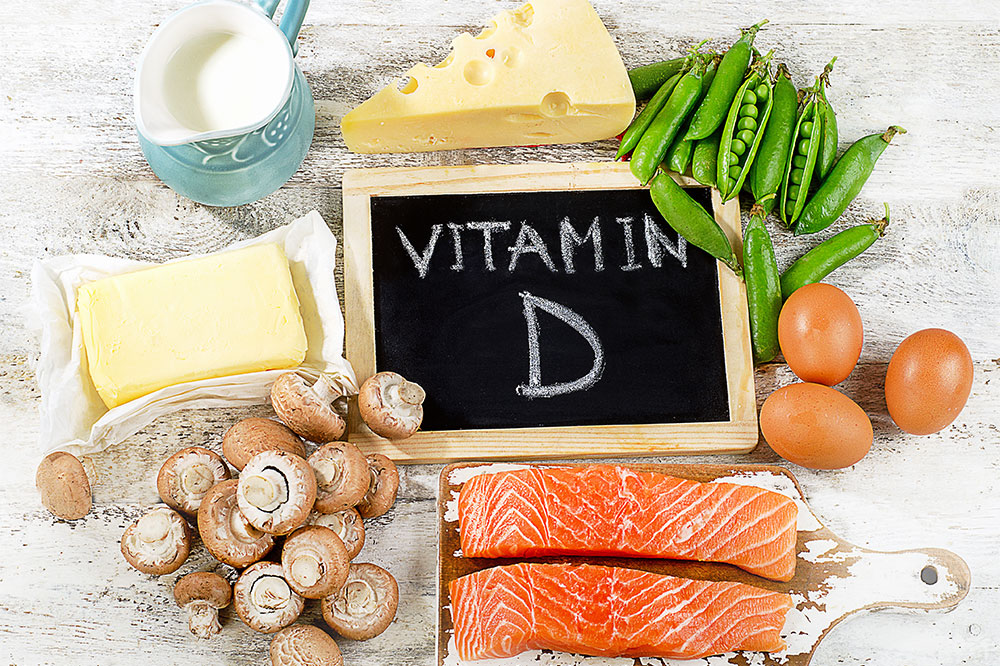Osteoporosis – Foods to eat, symptoms, and home remedies

Osteoporosis is a bone condition where the bones become brittle, which leads to their weakening and creates a high possibility of fractures. There are about 54 million people in the United States who have this condition. Although it occurs in both men and women, the latter are more susceptible to developing the disease. Fortunately, there are factors like the right foods to eat, avoid, and home remedies, to keep the condition in check.
Foods to eat
Dark leafy greens
Kale, cabbage, and collards contain calcium, while other dark leafy greens contain magnesium and vitamin K. These properties together help fight osteoporosis. You can also try spinach and Brussel sprouts which are also rich in such nutrients.
Eggs
Eggs are rich in vitamin D, which helps manage osteoporosis. It can also monitor a calcium-binding protein in the body that can regulate when calcium is absorbed.
Dairy products
Dairy products are excellent sources of calcium, which acts as the primary nutrient when it comes to better bone health. Dairy products include cheese, yogurt, and milk, while other substitutes such as soy milk, tofu, and almond milk also have good calcium content.
Fruits
Fruits like figs and kiwis are rich in vitamin A, C, and K, which help improve the density of bones. You may even want to try papayas, oranges, and bananas. They release potassium into the body, eliminate any acid growth in the bones, even retain calcium.
Foods to avoid
Alcohol
Though alcohol in small quantities might be safe, drinking too much is drastic for someone with osteoporosis. The National Osteoporosis Foundation suggests drinking only two or fewer drinks a day to avoid any complications.
Salty foods
Adding too much salt can also negatively impact the condition. Excessive salt can force your body to release excessive calcium, which is otherwise needed for healthy bones. So it would help if you considered limiting sodium intake to no more than 2,300 mg per day.
Caffeine
While coffee can help you stay awake and alert, it can negatively impact bone health. And it’s not just coffee, but tea, energy drinks, and sodas also contain high amounts of caffeine and should be avoided for people with osteoporosis. Too much consumption can lead to a reduction in calcium absorption and degrade the bone structure.
Foods with vitamin A
Though vitamin A is essential for bone health, too much of it can cause unprecedented bone problems. Also, if you consume multivitamin and fish liver oil supplements, the chances are that you will be at a higher risk for such side effects.
Home remedies
Though medications for the treatment of osteoporosis exist, home remedies also help manage the condition.
Exercise
Running, tennis, stair climbing, and other weight-bearing exercises can help bone density and make your bones stronger.
Quitting smoking
Smoking tends to make bone mineral density worse (especially for women), which can lead to weak bones. So it’s vital to quit smoking for improved bone health.
A balanced diet
Eating the right foods (as mentioned earlier) is a great way to boost the strength of your bones.
Signs and symptoms
You will not be able to manage the condition if you aren’t aware of its existence. However, some signs indicate the presence of osteoporosis.
- Pain in lower regions of the back
- Shortness of breath caused by smaller lung capacity as a consequence of compressed disks
- Hunched back due to a change in posture
- Unexpected bone fractures
While there are home remedies to manage signs and symptoms of osteoporosis, it is also important to manage them effectively through medications. Here are some medicines that help manage osteoporosis and should be taken as per one’s doctor’s recommendations.
Prolia®
Prolia® is a form of post-menopause medication that may provide relief from osteoporosis. It does so by inhibiting the process of bone degeneration by stopping harmful cells from attacking healthy bones. The medication can be taken in the form of a subcutaneous injection once every six months.
Fosamax
This is another medication that reduces osteoclast activity, thus slowing down bone degeneration. A type of bisphosphonate medication, it comes in the form of tablets that can be taken once daily or weekly depending on severity of osteoporosis.
EVENITY®
It is a form of subcutaneous injection that stimulates bone formation and helps manage osteoporosis. The medicine can be taken once every month.
FORTEO
The FDA has approved FORTEO for the treatment of osteoporosis in postmenopausal women facing higher risk of bone fractures. It is also used to increase bone mass in some men with primary or hypogonadal osteoporosis. In addition, FORTEO can treat osteoporosis in adults who are at high risk for bone fracture due to long-term use of glucocorticoids. The recommended dosage is 20 mcg, given subcutaneously once a day.

